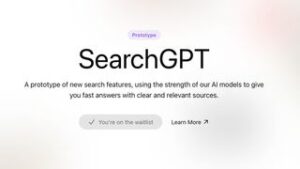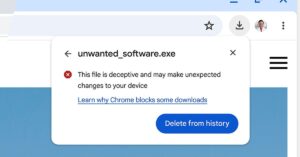/cdn.vox-cdn.com/uploads/chorus_asset/file/24631207/1240294306.jpg)
If you want to be a member of Mozilla.Social, Mozilla’s new Mastodon instance, you’re not allowed to harass other users. You’re also not allowed to use derogatory language about gender, sex, sexual orientation, race, age, ability, or any other “physical, social or cultural attributes or classifications.” You can’t spread misinformation and disinformation, either. Or impersonate someone. Some of these are normal policies, some are unusually heavy-handed, and they’re all hard to litigate. But Mozilla’s stance is pretty simple and extremely unusual in the social media universe: if it’s debatable, it’s gone.
“We’re not going to advertise that we’re some kind of neutral platform,” says Steve Teixeira, Mozilla’s chief product officer. He says too many platforms try to find a middle ground between, say, people who want to do others harm and people that don’t, when in reality, there is no middle ground at all. “You have to land on the side of people who don’t want to do harm to others.” By not pretending to be neutral and not claiming to be the free speech wing of anything, Mozilla hopes it can be much more active in making Mastodon a good place to be.
Mozilla’s content policies also make clear that the platform will err on the side of protecting people who need to be protected, who tend to be more vulnerable in most online spaces. Teixeira says he expects to take some heat for that stance, but he’s okay with it. That’s kind of the whole point. “This is what it means to stake out a point of view on content,” he says. Above all, he wants to make Mozilla.Social a place where people can go and have the experience they mean to have. “And I don’t mean to go on there and be harassed, or receive death threats, or whatever,” he says. “We believe that it’s really important that people can go online and, like, engage and share cat pictures or yuk it up with my friends.”
Mozilla wants to make Mozilla.Social a place where people can go and have the experience they mean to have
Mozilla.Social is the next step in Mozilla’s exploration of the decentralized future of social media. The company announced in December that it was looking into the so-called Fediverse in the hopes that it could help build a better social sphere online. “The first step is to actually be an active participant in that world and do some learning, and not roll in as the gorilla or some giant thing that’s like, ‘Sure, we know everything, and we’re going to tell you how it is,’” Mozilla CEO Mitchell Baker said recently on The Verge’s Decoder podcast. Mastodon may not be the key to that future — though a lot of smart people think it, and its underlying ActivityPub protocol, might be — but it’s a pretty good place to start.
Content moderation quickly emerged as the place Mozilla felt it could do some immediate good. In part because it’s a big company with lots of resources and tools for moderation and in part because it fits so squarely with the Pledge for a Healthy Internet that Mozilla published a few years ago. The Pledge’s thesis is that the internet is real life, that everyone must be able to use it and feel welcome on it, and that the internet’s job is to make life better. But also in part because content moderation really is the main product of any social network — and if you want to make social better, that’s where you have to start.
Aggressive moderation isn’t a new idea, of course. Lots of forums and sites have strict rules about what you can and can’t say — if you join a given subreddit, for instance, you often even have to play by specific rules about how to title and format your posts. But those tend to be smaller and usually topical forums. Mozilla is trying to figure out how to do it at scale. “Mastodon scale,” anyway.
Whatever Mozilla did in this space was likely to be a big deal, and Teixeira says he’s hopeful that the ecosystem steals all of Mozilla’s best ideas. He likes to talk about the “loadout” for a new platform like this and thinks Mozilla can help build tools that are eventually just available by default to anyone who wants to stand up a Mastodon instance or develop a complementary platform. With content moderation, that’s a tall order: moderation is a tricky, manual job that doesn’t scale easily.
For Mozilla, moderation will be a mix of automated and human work. (Teixeira points out that his timing was good here: thanks to Twitter chaos and layoffs around the tech industry, there are a lot of good people with knowledge of the subject looking for jobs.) Mozilla has been engaging with moderation firms while also investigating some of the Mastodon-friendly open-source tools out there — Teixeira mentions Cinder in particular as a popular one. Still, he acknowledges that one of the things he’s signing up for is an endless race to stay ahead of the problems. He knows this race well, of course, having done a stint at Twitter himself before joining Mozilla.
Beyond the content rules, Mozilla.Social won’t immediately look much different than most Mastodon instances — for now
Beyond the content rules, Mozilla.Social won’t immediately look much different than most Mastodon instances. But pretty quickly, Teixeira says, Mozilla plans to start looking for other ways to make Mastodon a little better, too. “I think the bigger challenge with Mastodon right now is just it needs some UI love.” He’s really interested in figuring out a better verification tool, for one thing, to help notable users get settled on the platform and help users find the real versions of the people, brands, and services they care about. He’s already thinking about what a Mozilla-made social app might look like, too.
Long term, Mozilla also wants to help bridge some of the many apps coming available, potentially turning Bluesky and Mastodon into complements and not competitors. “We’ve all slouched into treating social media as public infrastructure,” Teixeira says. “The MTA in New York or the BART in the Bay Area, they rely on these privately owned internet platforms in order to say, like, ‘hey, the train’s delayed.’” The better goal, he says, is to have a single system that’s not run by any company or organization. “One of the things that we hope the Fediverse can do is serve this need for a reliable place for those kinds of public services to take root and flourish in a way that can’t be undone by any one person or any small group of people.”
Right now, Mozilla.Social is in a closed beta. You can join the waitlist, but you might be waiting a while: Teixeira says Mozilla’s still early in the rollout and is much more interested in building the right space than in building it quickly. “Growing like gangbusters is a non-goal for us,” he says. His job, and Mozilla’s, is to prove that it’s possible to have a social network that feels good to be part of. Then help it grow to the size of the internet.





